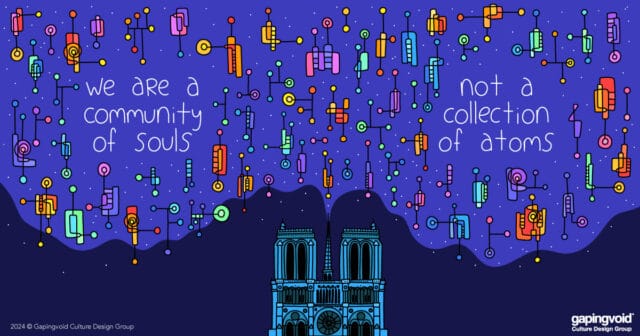[When companies get too successful to fast, this often happens…]
Does this ever happen to you? A person that you’ve known forever, maybe since you were kids, suddenly becomes very wealthy? Winning the lottery , inheritance, bought out by Google, etc.?
And then suddenly, it changes them? They start acting all weird?
They suddenly get all twitchy and paranoid? And suddenly, you don’t feel like you know them anymore?
It happens all the time. And it’s pretty understandable. A huge, sudden increase in wealth is what Shakespeare calls “outrageous fortune”. It’s hard to know what to do when it strikes. It’s completely outside of what we think of normal experience. And not everybody is good at handling it.
The thing is, outrageous fortune doesn’t just happen to individuals, it also happens to organizations.
Microsoft, Google, Apple, Facebook all experieneced a kind of success at a rate that would make Rockefeller, Carnegie and Ford gasp. And we seem to live in era where it happens more than ever.
Sure, like individuals, some companies remain relatively sane when outrageously good fortune strikes, and some companies go crazy bonkers and dysfunctional. The latter rarely ends happily.
The ones that do stay normal are the ones who have a very strong sense of “Culture”, of who they are. They have a very clear idea of what matters and what they stand for.
Individual human beings have to learn how to know and love themselves. Ditto with even the most powerful of corporations.
This is why “Culture” has become such a hot topic in business literatureg. This is why comapanies experienceing rapid growth have to pay such close attention to it.
Where to start? I read Harvard Business Reveiw for new articles on the subject. Also, Zappos CEO Tony Hsieh (disclosure: he’s a good friend and ally of gapingvoid) has a REALLY terrific book on the subject.
This is an area of the business that gapingvoid will be spending more and more time on in 2014. I think we all will.




